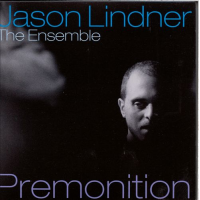Home » Jazz Articles » Album Review » John Coltrane: Ascension
John Coltrane: Ascension
"Ascension" starts out with an almost Mingusian ensemble statement of polyphonous horns and swaying rhythmic undercurrents. Brass and reeds leap majestically off a melodic edge and soar into collective shout before Coltrane pushes to the forefront for the first solo. Johnson, Sanders, Hubbard, Tchicai, Shepp and Brown follow in succession unstoppering a sustained flow of ideas that crash against the ears in white-capped, frothy waves. Each man steps to the pulpit, speaks his peace and is answered by an ensemble retort. Sanders is the most transcendentally ecstatic and at the same time his solo is the most difficult to swallow, overflowing with molten overtones and chortling upper register squeaks. In sharp contrast Hubbard's exposition is the linear and restrained though it still feeds from and builds on the locomotive energy of his associates. After the litany of horns it's Tyner's turn and his solo, as in so many other instances during his tenure in Trane's core quartet, works effectively to pilot the battered and buffeted ship to more lyrical, but no less propulsive straits. The bass duet that ensues after another ensemble interlude is simply astounding. Arco and pizzicato meet in a twining pillar of lines that finds Garrison working through the Flamenco patterns that were a trademark of his technique and Davis cleaving off dark resonating streaks through his bow. An ecstatic ensemble reprise of the initial theme closes the piece out. A well placed extended pause prefaces the entrance of "Edition II" before the players start up again and follow a slightly different succession of statements.
Previous to this reissue, both versions of "Ascension" were available on separate discs of an earlier compilation, The Major Works of John Coltrane. The programming of this new offering places them side by side maxing out the disc's running time of just under 80 minutes. Compared to the earlier release the sound clarity, which was already sufficient thanks to engineer Rudy Van Gelder, is also markedly improved and the separation between instruments is better than ever before. Whether this bit of audiophile interest necessitates its purchase is up to the individual listener, but anyone who hasn't heard this music certainly owes it to him or herself to do so.
Track Listing
Ascension- Edition II/ Ascension- Edition I.
Personnel
John Coltrane
saxophoneohn Coltrane- tenor saxophone; Freddie Hubbard- trumpet; Dewey Johnson- trumpet; Marion Brown- alto saxophone; John Tchicai- alto saxophone; Pharoah Sanders- tenor saxophone; Archie Shepp- tenor saxophone; McCoy Tyner- piano; Art Davis- bass; Jimmy Garrison- bass; Elvin Jones- drums.
Recorded: June 1965, Englewood Cliffs, NJ.
Album information
Title: Ascension | Year Released: 2000 | Record Label: Impulse!
Tags
PREVIOUS / NEXT
Support All About Jazz
 All About Jazz has been a pillar of jazz since 1995, championing it as an art form and, more importantly, supporting the musicians who make it. Our enduring commitment has made "AAJ" one of the most culturally important websites of its kind, read by hundreds of thousands of fans, musicians and industry figures every month.
All About Jazz has been a pillar of jazz since 1995, championing it as an art form and, more importantly, supporting the musicians who make it. Our enduring commitment has made "AAJ" one of the most culturally important websites of its kind, read by hundreds of thousands of fans, musicians and industry figures every month.



















